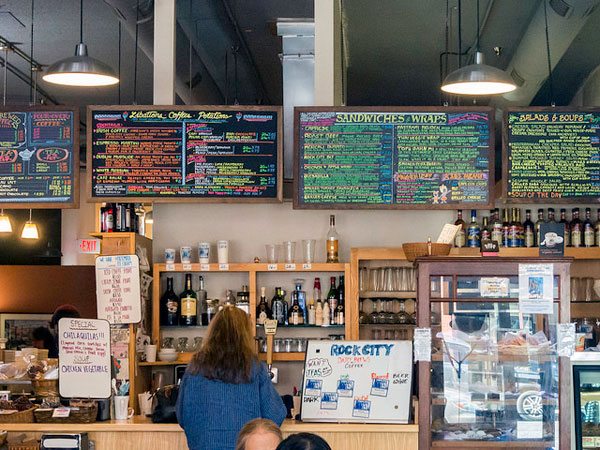
May 7, 2018; Bangor Daily News
Two months ago in NPQ, we profiled Rock City Coffee of Rockland, Maine, as one of a group of businesses that had covered to employee ownership. Two months later, Lauren Abbate of the Bangor Daily News examines what are some of the factors that are making the transition to employee ownership go smoothly at the 30-person café, now owned by 17 owner-employees.
Some of the factors identified are the following:
Sign up for our free newsletters
Subscribe to NPQ's newsletters to have our top stories delivered directly to your inbox.
By signing up, you agree to our privacy policy and terms of use, and to receive messages from NPQ and our partners.
- Education: Abbate points out that, “The transition from single-person ownership to an employee-owned cooperative has been in the works for about three years.” Kevin Malmstrom, who has worked at the café for 14 years, told Abbate that “leading up to the finalizing of the loan and cooperative formation…a big focus was put on education, to make the prospective employee-owners aware of what to expect and what was expected of them in ownership.”
- Limited Risk: Rock City Café, built up over more than 20 years, had become a local (and beloved) community institution. While any business has a risk of failure, as Natalia Ayala, who has worked at Rock City for three years says, “This business is very well established, so I don’t think it’s going to fail. There are contacts, there is a community that is behind it. All of us, even though we haven’t been an owner, we’ve all been a part of the business, too.”
- Flexibility: While 17 employees are owners, management is largely unchanged (although management now reports to a five-person elected co-op board). As Abbate writes, “Another boon to the cooperative ownership model for Rock City employees was the ability to take on as much, or as little, responsibility as they can. For example, Ayala, because she has two small children told Abbate that she is “working fewer hours as a barista in the cafe and instead is taking on additional cooperative tasks that she can do while caring for her children.”
- Culture: As Abbate puts it, “While the employee-cooperative model is new to Rock City, the feeling of employees being at the forefront of the business is not—which is why [former owner Susanne] Ward and the new owners think the coop fits perfectly. “It’s the people all in all,” says chef Ryan Flanders. “Everything seems to have always been geared toward cooperation and cooperative concepts. So this feels like a totally natural transition.”
Rob Brown, director of business ownership solutions at the nonprofit Cooperative Development Institute, provided technical assistance that helped make the ownership transition happen. According to Brown, in Maine, as in much of the country, there are many “business owners finding themselves at retirement age but not wanting to endure the traditional sale process.”
“It’s not any one sector, it’s the situation the business owners find themselves in,” says Brown, “Selling a business and transitioning a business is a complex endeavor, and so I think by doing it this way, an employee-ownership conversion eliminates a lot of risks.”
As the business adds employees, new employees will also be able to join the Rock City Employee Cooperative. To do so, they must work at Rock City for at least 15 months and apply for membership to the co-op’s board.—Steve Dubb











